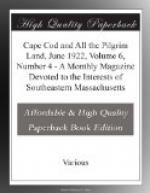Proportion is the sixth sense and without it the other five are practically useless.
Apply your days discreetly—don’t do anything which you can hire somebody else to execute for you. Concentrate on paying propositions. Aside from the arts and fine crafts, nobody ever got far single-handed.
Delegate the lesser duties to assistants. Let them make an occasional mistake. If you’re saving your thoughts for the responsibility of management a few inaccuracies in the organization won’t amount to much.
Differentiate between incidents and issues.
One can’t lead and follow simultaneously.
Rely on subordinates. You can’t be the whole works.
As the head of the concern, you’re the highest priced employee. Figure your hour value and invest it accordingly. Triphammers may drive tacks, but not profitably. The operation is too expensive for the return.
Thoroughness is an admirable quality when intelligently exercised, but a folly when the game isn’t worth the candle.
You’re a good bargainer but you make bad deals despite the concessions secured if the final terms represent a reduction which does not cover the cost of your energy.
You can hire folk to handle most interviews and satisfy the demands of the average caller.
Correspondence clerks can read and answer the greater part of the mail.
One letter in twenty deserves your consideration—the nineteen are merely routine communications which should never come under your notice.
Study the future; observe the trend of events—weigh conditions. Success is the servant of forethought and you won’t be able to measure possibilities except you have free moments to reflect and scheme.
Get the dimes out of our eyes and find where the thousands are located.
Engage experts to purchase supplies and run systems—reserve yourself for decisive matters; that’s real economy.
Hold the throttle—watch the gauge and signals or there will be a wreck and you’ll be in it.
Stick to your cab, keep the schedule. The engineer who tries to be fireman, conductor and brakeman as well, is headed for a smash.
“The Portal of the Cape”
L.C. HALL
The present town of Bourne can claim many interesting facts about its early history although not for 200 years after the coming of the Pilgrims did it become a separate town. It was included within the limits of the town of Sandwich until the comparatively recent date of 1884.
In 1622 Governor Bradford visited the Indian village of Manomet, so called in their language, but which became corrupted into Monument, a name by which the place was long known. It is probable that the reason of the visit was partly for the purpose of establishing a short cut between Buzzards Bay and Plymouth, via the Manomet (or Monument) River.




